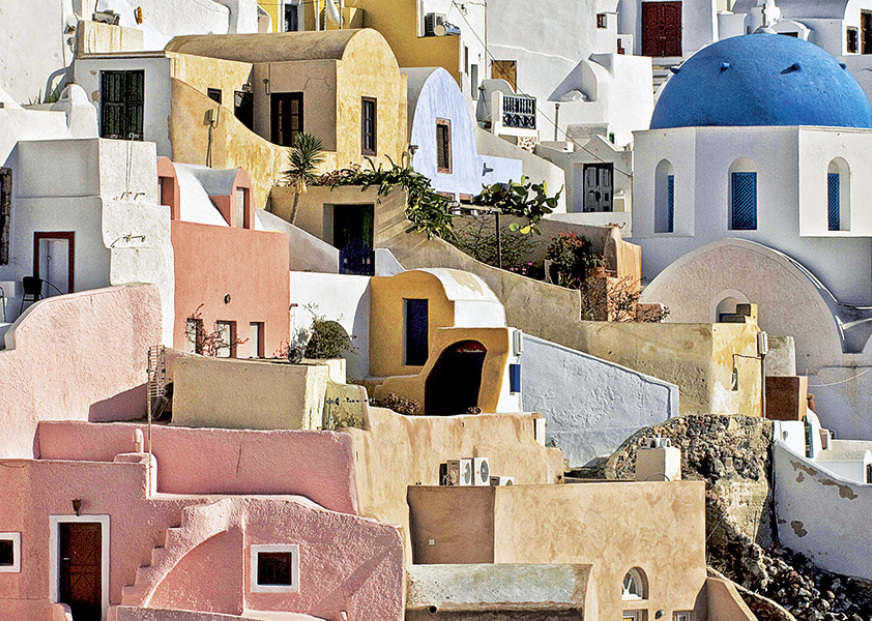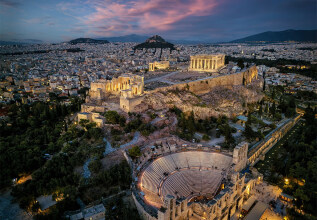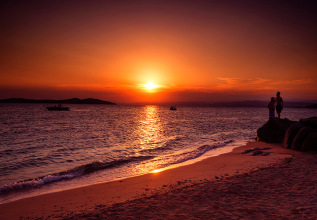3 MIN
TRAVEL TIPS
Santorini: A Place of Dreams

 It wasn’t just me. The island is so striking, pinning down its reality is almost impossible: you can’t experience it and not make it something more than a place in your mind. Even as you’re hiking its steps, sipping its wines, chatting with locals, part of it still remains, indelibly, a dream. A fantasy. A myth.
No surprise that the legends entwined around the island are many: it’s said the island was given by Triton to the son of Poseidon and – more famously – that Santorini is the real Atlantis.
I visited the island again two years later. I’d crammed enough traveling into those 24 months to become vaguely jaded: now, Santorini seemed almost too perfect. A kind of theme park where everything, from the lushly coated cats that sat on impossibly pristine stoops to the world-famous sunsets that lit up the sky in orange and pink, seemed designed just for our consumption.
The beauty can almost be too intense. Craig Walzer, a native of Memphis, has been running Santorini’s only English-language bookstore – Atlantis Books, modeled after Shakespeare and Company in Paris – for 12 years. In that time, he’s watched a lot of people come and go. All of them, he said, share one thing in common: “Intelligent adults come here and turn into infants,” he told me. All the beauty proves too much to absorb, so they become distracted by each small piece of it – a cat or a church dome or a sunset – and flit from one to the next, camera in hand, as overwhelmed as children.
It can take a couple of trips to see past that beauty, to start to understand what really makes the island tick. And on my third visit – a trip taken alone – that’s what happened.
see full article here
It wasn’t just me. The island is so striking, pinning down its reality is almost impossible: you can’t experience it and not make it something more than a place in your mind. Even as you’re hiking its steps, sipping its wines, chatting with locals, part of it still remains, indelibly, a dream. A fantasy. A myth.
No surprise that the legends entwined around the island are many: it’s said the island was given by Triton to the son of Poseidon and – more famously – that Santorini is the real Atlantis.
I visited the island again two years later. I’d crammed enough traveling into those 24 months to become vaguely jaded: now, Santorini seemed almost too perfect. A kind of theme park where everything, from the lushly coated cats that sat on impossibly pristine stoops to the world-famous sunsets that lit up the sky in orange and pink, seemed designed just for our consumption.
The beauty can almost be too intense. Craig Walzer, a native of Memphis, has been running Santorini’s only English-language bookstore – Atlantis Books, modeled after Shakespeare and Company in Paris – for 12 years. In that time, he’s watched a lot of people come and go. All of them, he said, share one thing in common: “Intelligent adults come here and turn into infants,” he told me. All the beauty proves too much to absorb, so they become distracted by each small piece of it – a cat or a church dome or a sunset – and flit from one to the next, camera in hand, as overwhelmed as children.
It can take a couple of trips to see past that beauty, to start to understand what really makes the island tick. And on my third visit – a trip taken alone – that’s what happened.
see full article here


